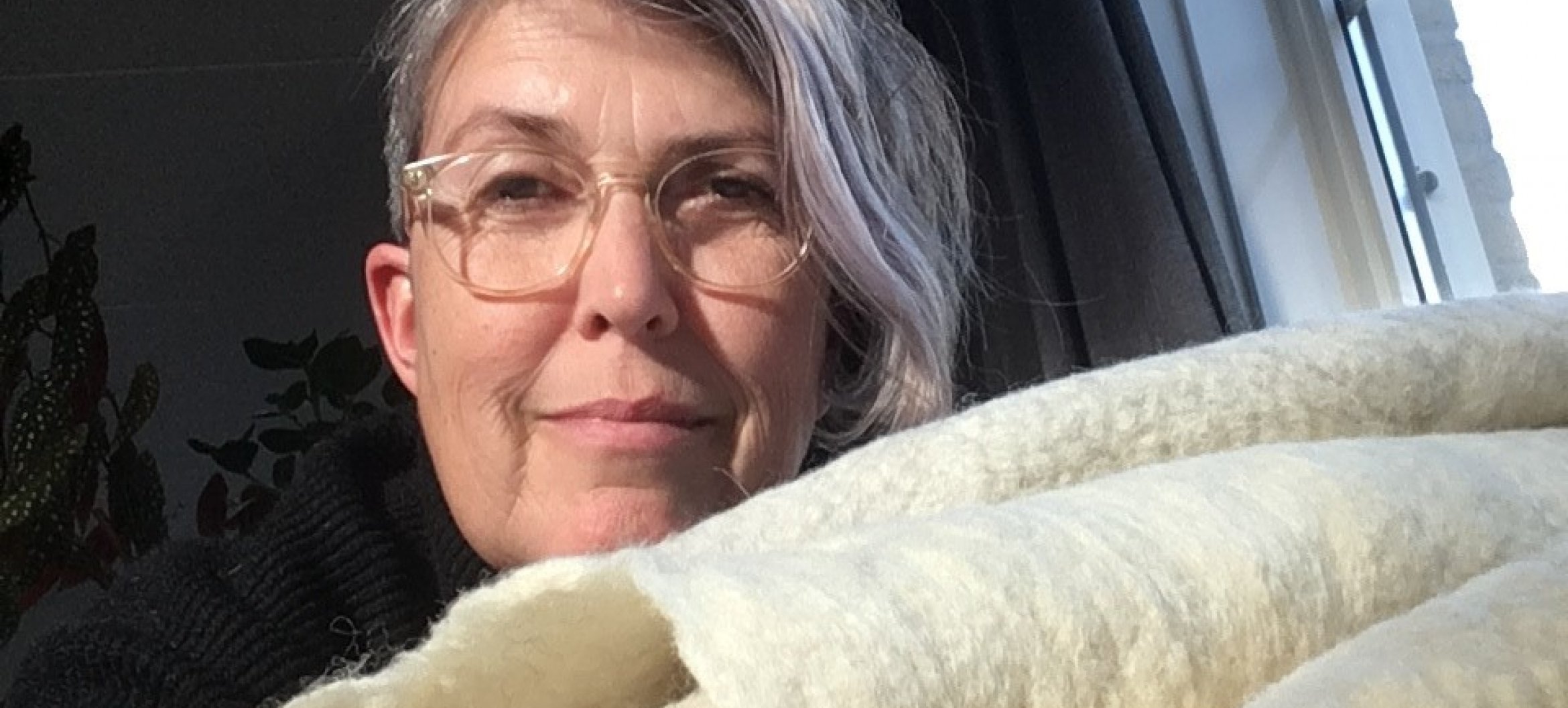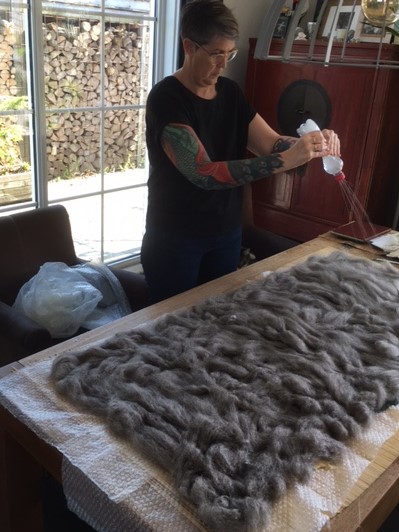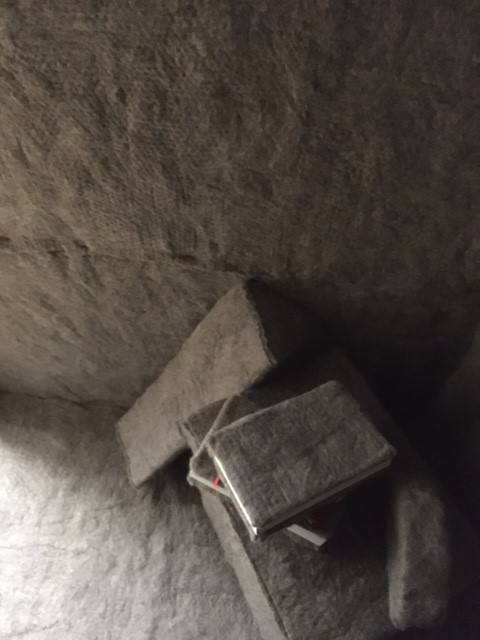'My work gives you an experience of the Alzheimer's process.'
Many of the students at ArtEZ arrive straight from secondary school. But there are exceptions – people who start a course later in life after following another career. One such person is Jacqueline Kerssens, a speech therapist with her own practice, who chose to do the part-time course Fine Art and Design in Education in Zwolle. “I really enjoy teaching."

Jacqueline is a speech therapist with her own practice in Almere. She could have remained there for the rest of the life, but she opted to the Fine Art and Design in Education course in Zwolle alongside working. “After secondary school, I wasn’t accepted by the Rietveld Academie. I was 19 and quite shy, so looking back I can understand why I might not have fitted in there. So then I started a speech therapy course. But I always had that itch."
Teacher training
Some years ago, she was invited to come and help out in the creative lessons at her children's primary school. She accepted the invitation and has since been involved with the school for around twelve years, these days as a drawing and painting teacher. "I teach children from years 5 to 8 with a talent for drawing and painting, and also children who need special attention or support, to give them more self-confidence, for example." She used to teach alongside the subject teacher, but when the latter retired, she was ready to take over. "I subsequently enrolled on the Fine Art and Design in Education course because I felt that despite my experience, I did need a teaching qualification. I really enjoy teaching. Over the past ten years or so, I have found that it really suits me. I didn't think that before, but these days I really do."
Fascination with Alzheimer’s
As a student with a little more life experience, her first career has helped her a lot. Her training as a speech therapist overlaps with the course on the pedagogic side, for example. "You need it for both. The fact that I was already very familiar with teaching methods gave me a slight advantage during my course. Thanks to the course, I understand that as an artist I can also highlight medical themes, which is what I am trying to achieve in my graduation project." The graduation project consists of three felt-lined rooms that represent different stages of Alzheimer's disease. During her Speech Therapy course, she became interested in Alzheimer's and everything around it. "Working with old people always appealed to me. They always have stories to tell. And that interest led to my fascination with Alzheimer's: an intangible and irreversible illness. As a speech therapist, I graduated with a topic related to dementia. It feels natural, like completing the circle, to explore the same subject at ArtEZ in the graduation phase of the course."

Under your skin
Her graduation project consists of three felt rooms. “In the first room, I'm going to do a performance. It's a small room, which means I will be close to the viewer, which is deliberate. You step into the room and that's supposed to evoke a particular feeling in you. You experience it. The felt makes everything sound a little dull. The idea is for that feeling to get under your skin – it’s meant to be uncomfortable, it's meant to alienate, so that you get a sense of the early phase of the Alzheimer's process."
Putting yourself in the shoes of an Alzheimer’s patient
In the second room, Jacqueline uses a suitcase which has felt coming out of it. An aesthetic image. It's attractive to the eye, but it's also supposed to be confusing, she says. “I don't yet know exactly what the third room will look like." Perhaps it won't be a room at all but a space with felt hanging from the ceiling that you can step into. I want it to be sterile and light, because at that point there's no longer really anything going on. I hope to offer people an experience: what happens to you when you get this form of dementia? What do you perceive? What are you confronted with? In my work I don't pretend to be able to get inside the skin of a person with Alzheimer's, or enable the observer to do so. But I do want to create awareness of the impact of this disease in the viewer and make an impression on them."
Exhibiting
"When I'm finished with the course, I want to continue to combine the educational with the artistic", says Jacqueline, “as I am currently doing at the Singer Museum. There I give guided tours and workshops, including for visually impaired people. I have made work – again in felt – that enables the original work on display in the museum to make a different visual impact on museum visitors. In this way, I can act as a guide to the world of art, but also show people my own work." She has enjoyed exhibiting her own work. “I have exhibited my work in the health centre where I have my practice. I also get requests from other health centres in Almere to exhibit there. And I’d like to tell the Alzheimer's Foundation about my work. Perhaps they would also be interested in my graduation project."


